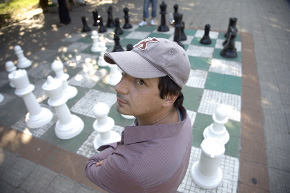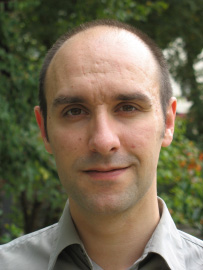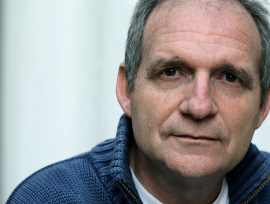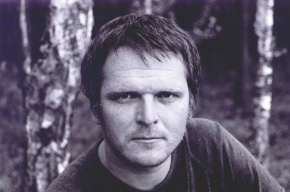NÖMADAK TX
Spain, 2006
91 minutes
directed by Raúl de la Fuente

A film which takes us on a journey all around the planet in a fantastic rhytm of images and primary sound of a unique archaic instrument - txalaparta. Just like in fairy tales, this journey begins when two young Basque men, musicians Harkaitz Martinez and Igor Otxoa, inspire life to simple pieces of wood. The uniqueness of txalaparta is that it has to be played by two people and the music is made through a dialog of two musicians. They expand the dialog and spread it around the world - from India to Lapland, through Mongolian plains and Africa. In search of new sounds they go through icy wastelands, Siberian mountains, burning hot deserts. During this great adventure the leading characters meet musicians of various cultures and they join their celebration of sound. Thus, through encounters and clashes, amazing music of extraordinary rhytm is being created and becomes a unique dialog of the planet. Film was made as a colective work, as a dialog, between musicians of the “Oreka Tx“, Harkaitz Martinez and Igor Otxoa, with Pablo Iraburu and Raul de la Fuente. “Nömadak Tx” became a favourite to audience at all important festivals worldwide. The film kept on going where the heroes left off and so the journey continues.
www.nomadaktx.com
SELECTOR‘S WORD: “At the first glance you might think that this is just another politically correct film – and then you discover that these young, charming music talented guys are able to establish more than just a superficial contact with people from al over th world. It's music, it's culture clash and diversity, it's a dream of a better world that is conveyed to us.”
Raúl de la Fuente

Born in 1974 in Pamplona, Spain. A graduate in Information Science from the University of Navarra, he has done a great deal of work as a screenwriter, director of photography and director. His first jobs were with music: Compay Segundo, Vieja Trova Santiaguera, Rosana. José Mercé, Moraito and Dolores Agujeta – Cubans and gypsies have marked his career. The heart rules in the case of Cuban Son and Flamenco. If the most important thing is people, the appropriate audiovisual format for portraying them was the documentary. Raúl de la Fuente has made documentaries in India, Morocco, Algeria, Mongolia, Guatemala, Ethiopia, Venezuela, Peru, Cuba, Lapland, Andalusia, and the Basque Country. In love with Latin American music and culture, his documentary work is an attempt at lending support to the creation of a free, sovereign Latin America. He is currently working on a project involving a feature-length documentary in Cuba.
Selected filmography
WAIKING UP OF ADIVASI PEOPLE (El despertar del pueblo Adivasi), 2000
ALZHEIMER (Alzheimer), 2001
EYES THAT CAN SEE (Ojos que si ven), 2002
AHIMSA (Ahimsa), 2003
JANAVAK (Janavak), 2003
FIFTH DISTRICT (Distrito cinco), 2005
TO FLY (Volar), 2006
NÖMADAK TX, 2006


















